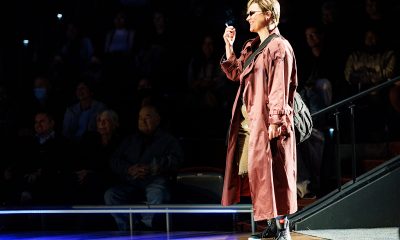Arts & Entertainment
Unequivocally gay
Oregon-based theater vet brings collaboration to Arena

‘Equivocation’
Through Jan. 1
Arena Stage
1101 Sixth Street, SW
$40-$80
202-488-3300
arenastage.org
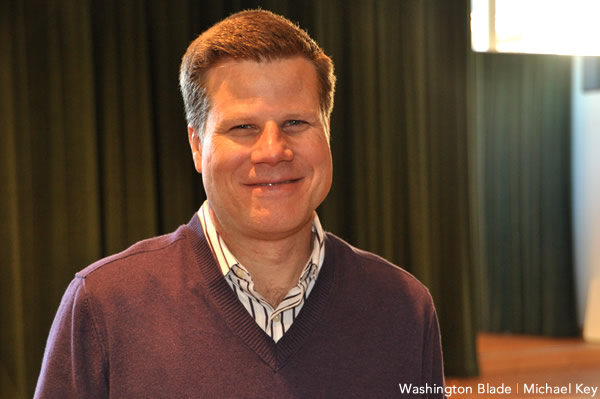
Bill Rauch, director of the Oregon Shakespeare Festival, brought his company’s ‘Equivocation’ to Washington for a collaboration with Arena Stage. (Blade photo by Michael Key)
Bill Rauch openly admits he has a gay agenda.
“Of course I do,” he says. “As a gay man I want to see LGBT lives reflected on the stage. For me it’s all part of the human experience.”
While “Equivocation” — the political thriller he’s brought to Arena Stage from the Tony Award-winning Oregon Shakespeare Festival where Rauch is artistic director — features a gay British monarch, it was the work’s clarity, force and theatricality that first caught his attention. “It’s a period piece that’s entirely contemporary in language and the way it explores the overlapping of politics, religion and art. As I read the script for the first time my heart began pounding harder and harder. That doesn’t happen very often.”
Set in 1604 London, playwright Bill Cain’s smart and entertaining play follows William “Shagspeare” and his theatrical troupe as they struggle to complete a royal commission about the Gunpowder Plot that both pleases King James I and isn’t entirely untrue. With six actors playing about 30 roles in several plays within the play, this darkly funny backstage story covers a lot of relevant territory including power, politics, religion, national security, terrorism, theater, father/daughter relationships, friendships and honesty.
A first-time collaboration between the Festival and Arena, “Equivocation” reunites the top-notch original cast (lead by Broadway actor Anthony Heald as Shag) and creative team from its 2009 world premiere production.
MORE IN THE BLADE: DUELING OTHELLOS
The last time Rauch worked at Arena was in 1993 when he staged “A Community Carol,” an inner-city take on the Dickens’ Christmas classic featuring a large cast of professional and nonprofessional local actors. Though the venture was risky, it proved both a critical and commercial success. It was also indicative of the work Rauch was doing with his then-troupe Cornerstone Theater Company (which co-produced the show).
Rauch attended Harvard where he majored in English and was heavily involved in campus theatrics. Shortly after graduating, he and some college friends including his now husband, actor/director Christopher Liam Moore, founded Cornerstone in 1986. Initially operating out of Rauch’s parents’ home in Northern Virginia, the company eventually traveled the country creating theater by collaborating with locals, typically in small communities. Since 1992, the company has been based in Los Angeles.
“It was a great run, but after 20 years with Cornerstone I was ready to move on. I became curious to know another kind of bigger theater. (Based in Ashland, Ore., the Festival is among the oldest and largest professional non-profit theaters in the nation and operates on a $30 million budget). He was named artistic director in 2007.
At the Festival, Rauch has gained a reputation for expanding the company’s scope, taking artistic chances and being an all-around nice guy. His staging efforts include an urban America 1970s-set “Measure for Measure.” The male actor who played Mistress Overdone, the brothel madam, portrayed her as a preoperative transsexual. She lands in jail where she is stripped naked and revealed to be a biological male. “It was an intense moment in the play,” he says. “For the character it’s a shameful experience. Some of the audience laughed. Others cried. There was a lot of discomfort.”
MORE IN THE BLADE: A NIGHT TO REMEMBER
Together 27 years, Rauch and Moore (who acts and directs at the Festival) have two sons, aged 11 and 6. They’re entirely different, says Rauch. The older loves sports and cars. He’s “all boy” (a term that Rauch loathes but deems apt nonetheless) and the younger is very much into everything princess. In fact, he regularly wore a princess gown to pre-school for two years. Both fathers are perfectly happy to allow their kids to express themselves in whatever way they choose, and fortunately, Rauch notes, Ashland is a progressive town.
Part of what drew Rauch to Arena is his longtime friendship with artistic director Molly Smith. In ways, he’s viewed her career trajectory — from small innovative company to important regional theater — as a template for his own. For some time, the pair had discussed Rauch brining something from the Festival to D.C.
“While I would have been proud to bring any of our productions to Arena, I’m glad it’s ‘Equivocation.’ The play is bottomless. There’s always something more to uncover. And it’s very political — that’s what makes it an especially good fit for Washington.”
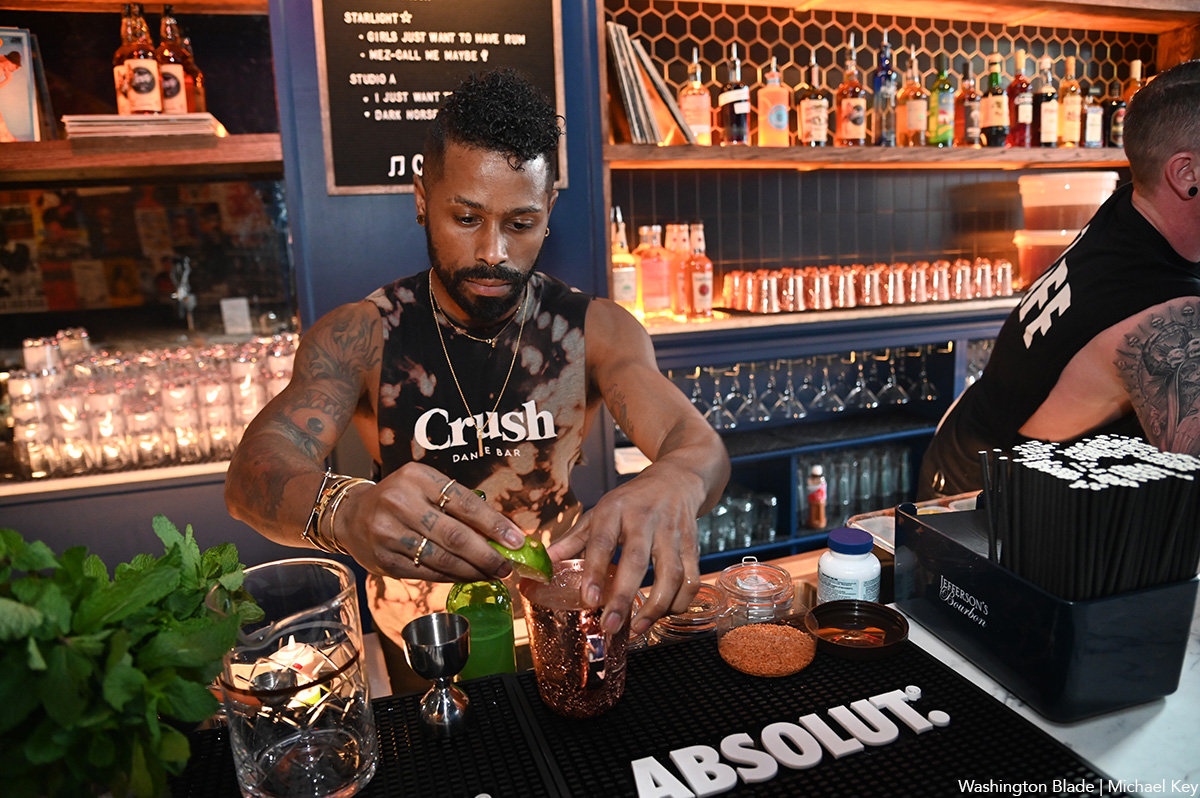
The new LGBTQ venue Crush held a party for friends, family and close supporters on Tuesday. For more information on future events at Crush, go to their Instagram page @crushbardc.
(Washington Blade photos by Michael Key)
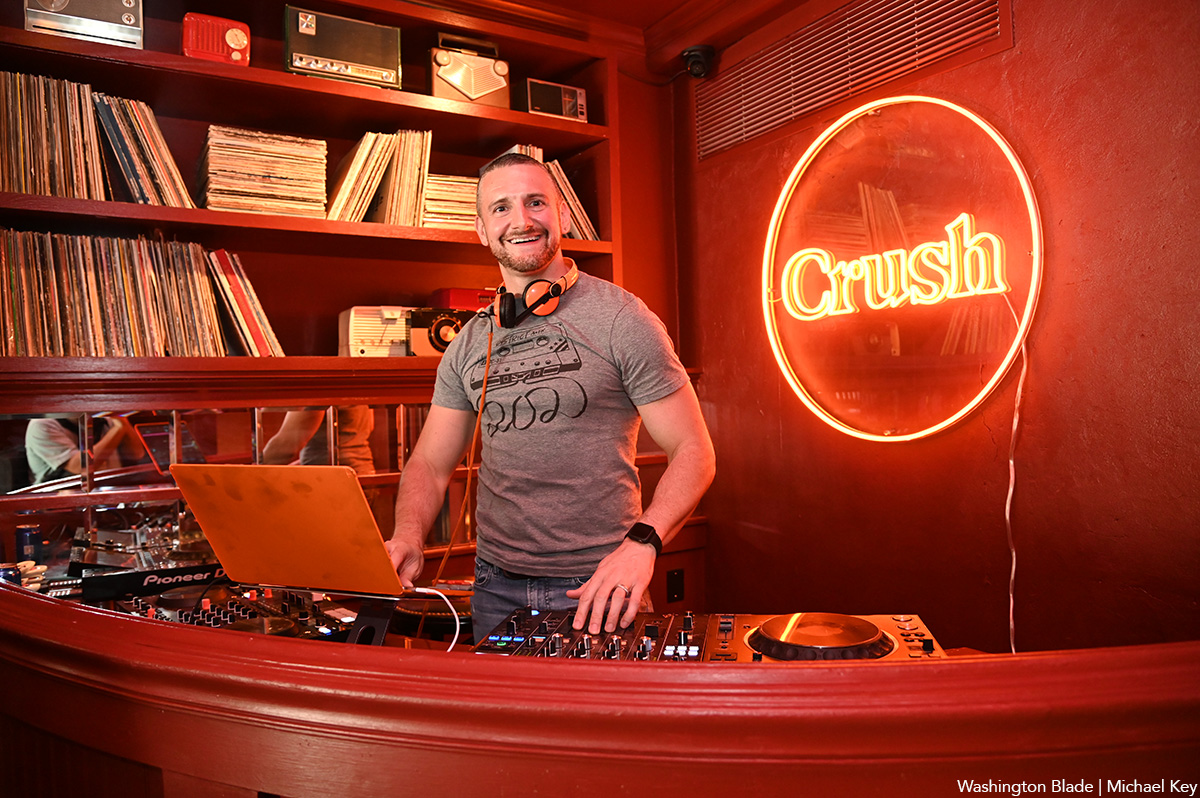
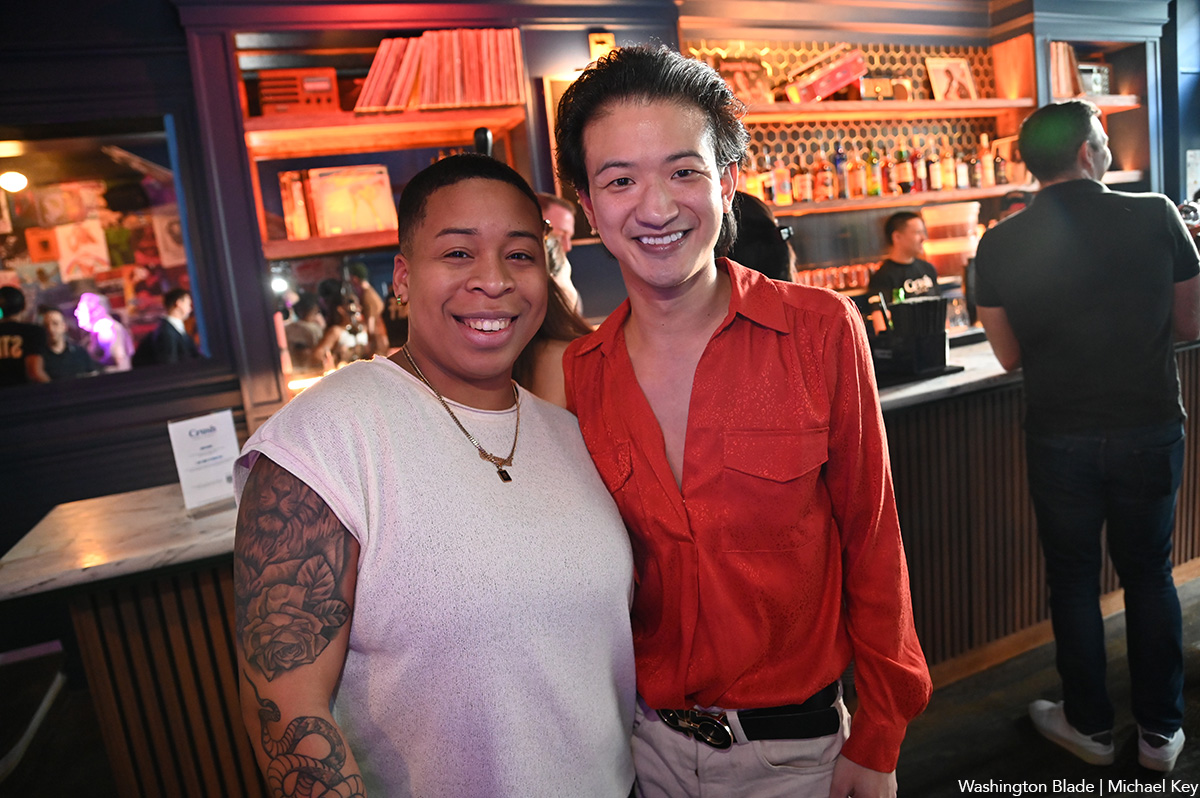
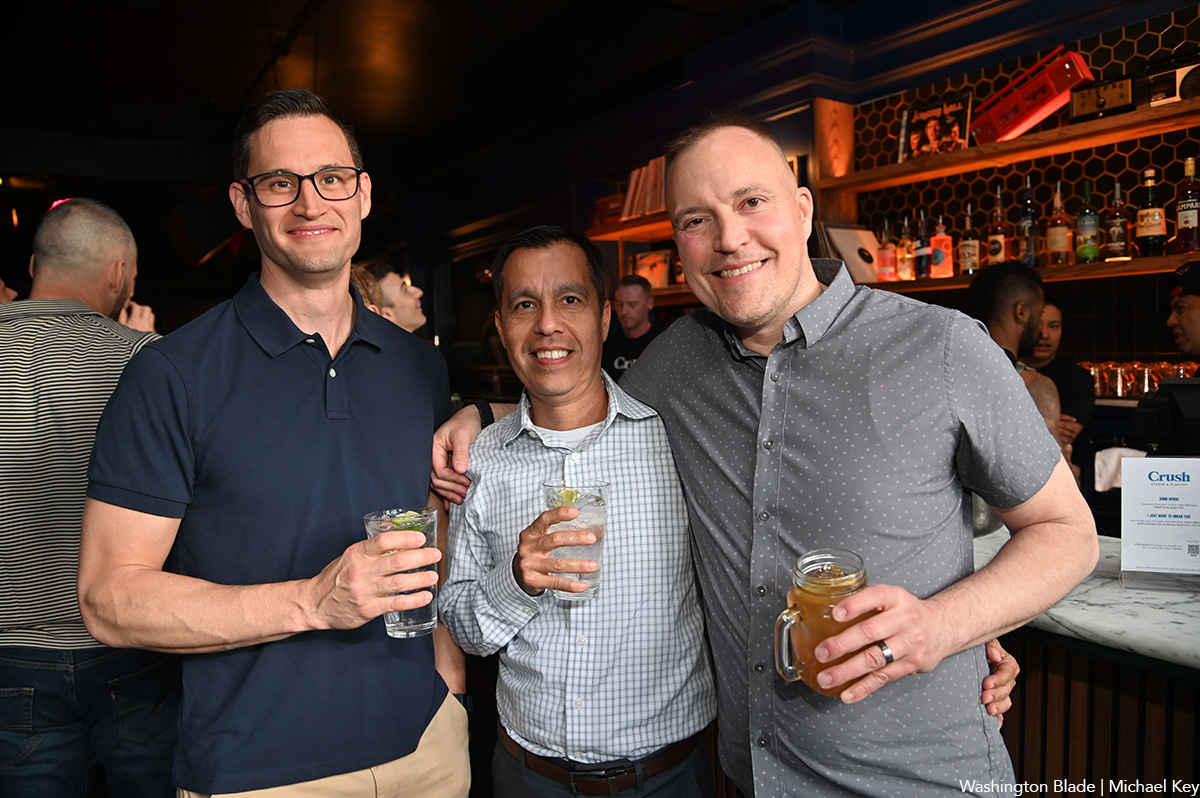
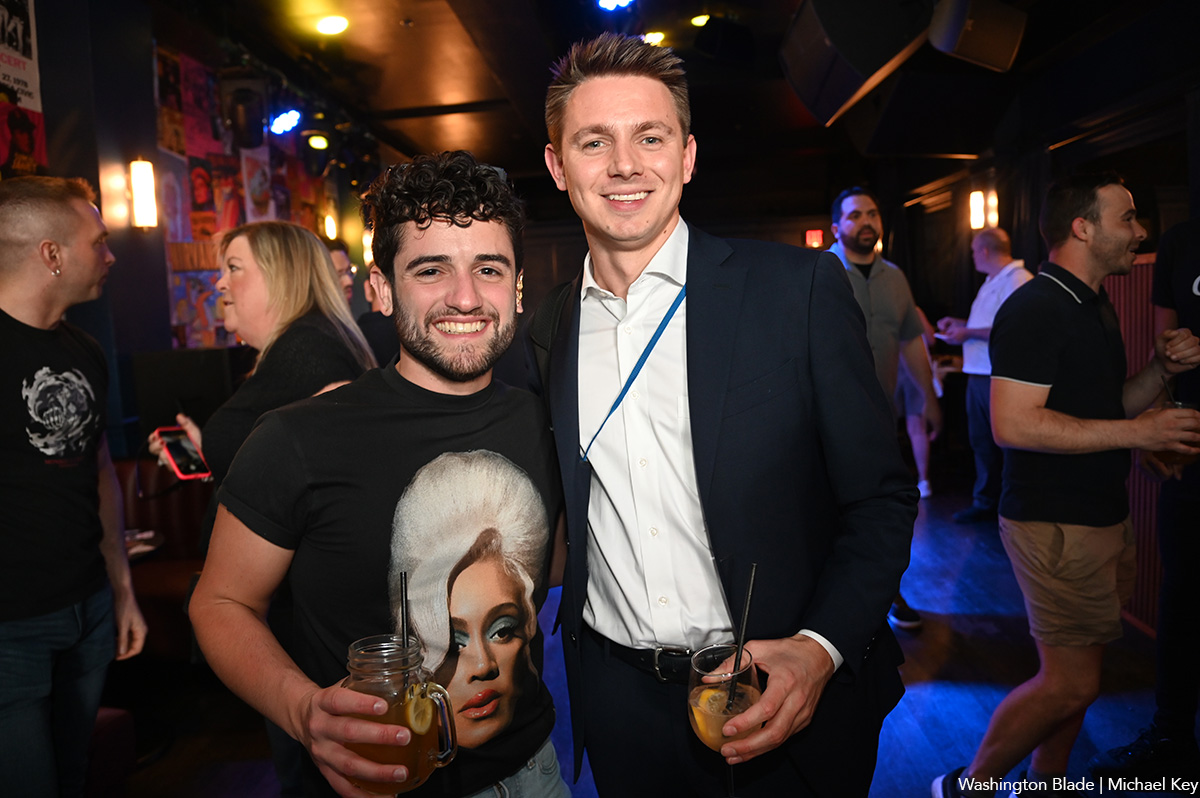

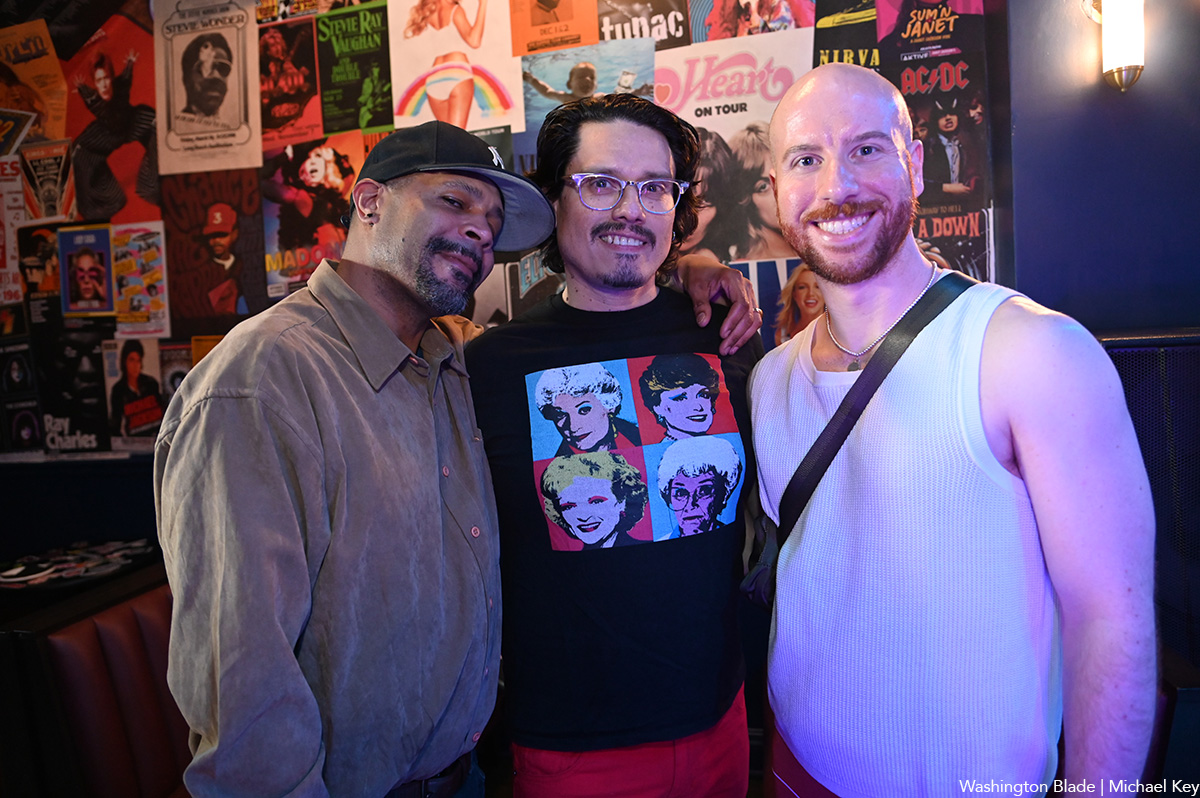
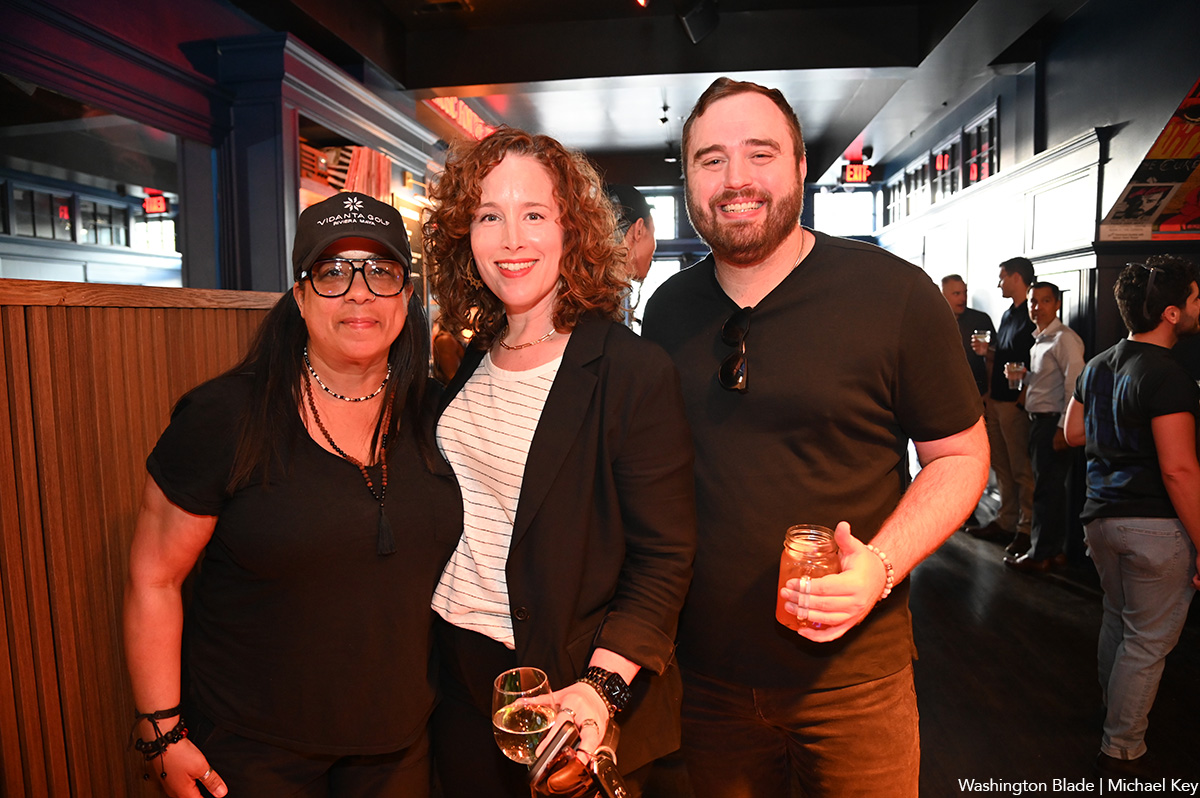
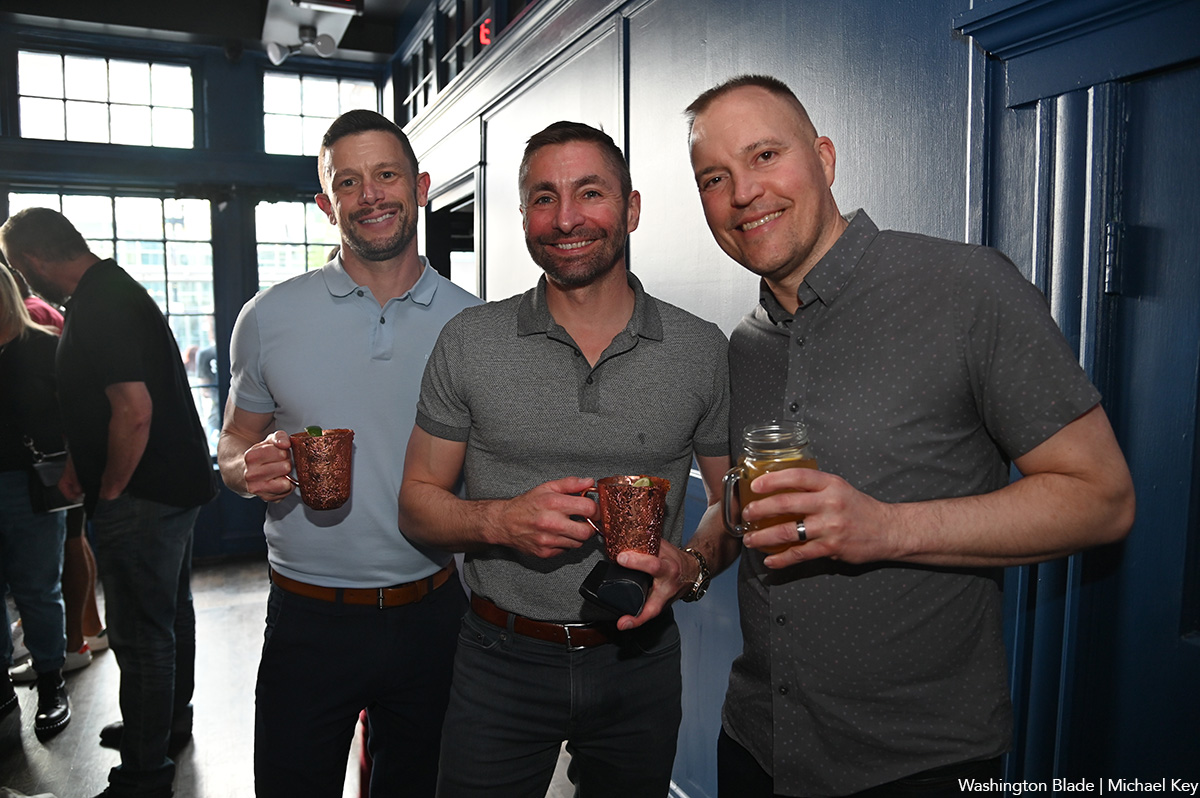

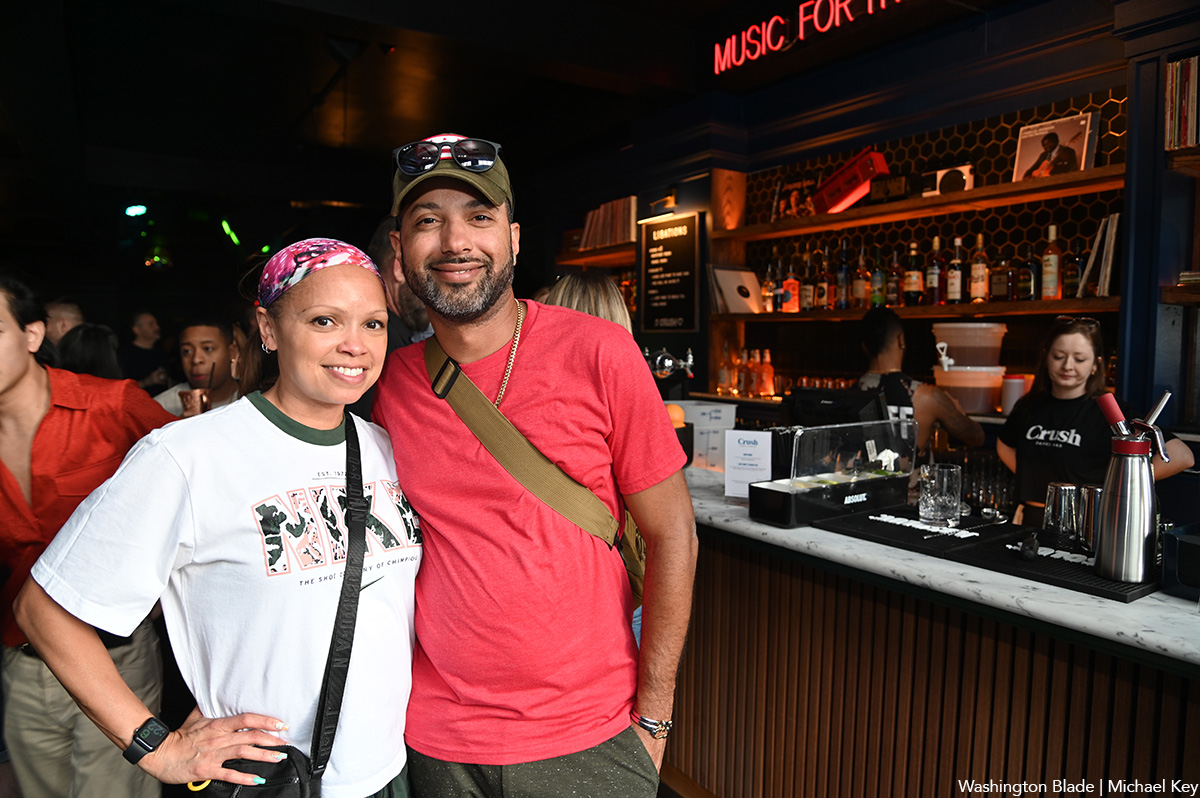
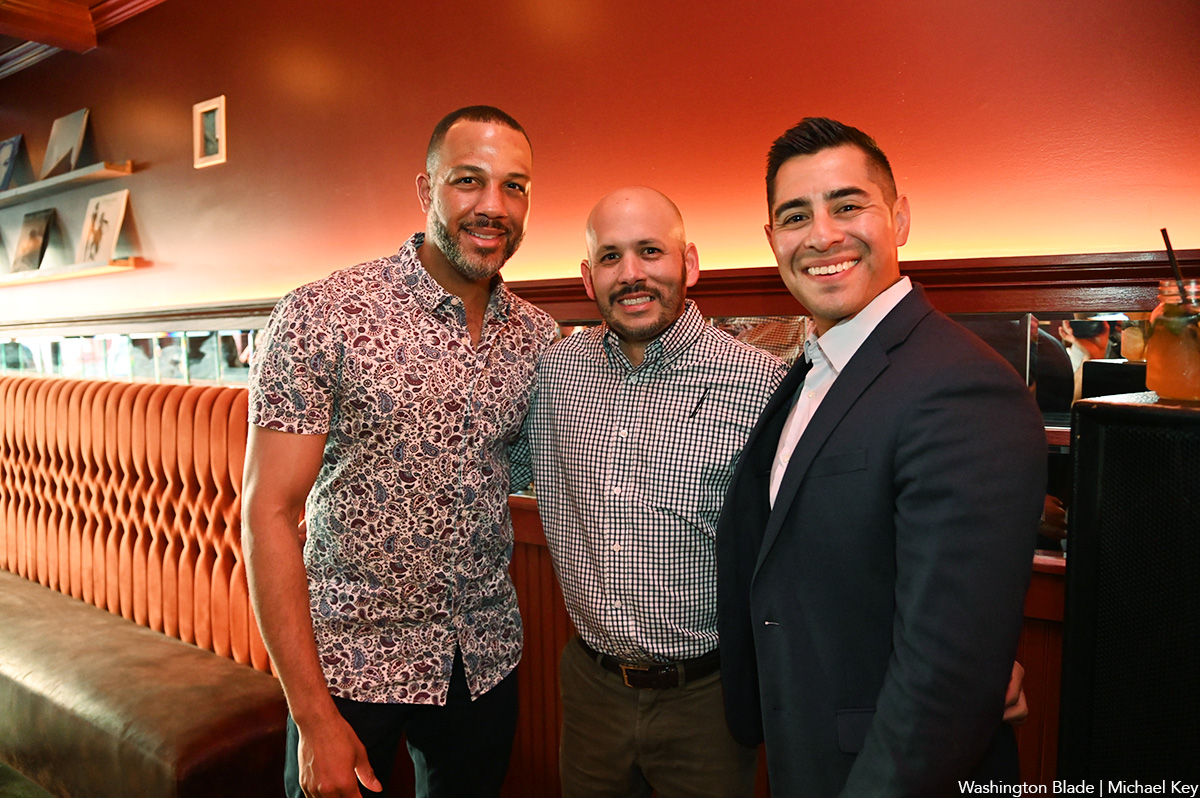
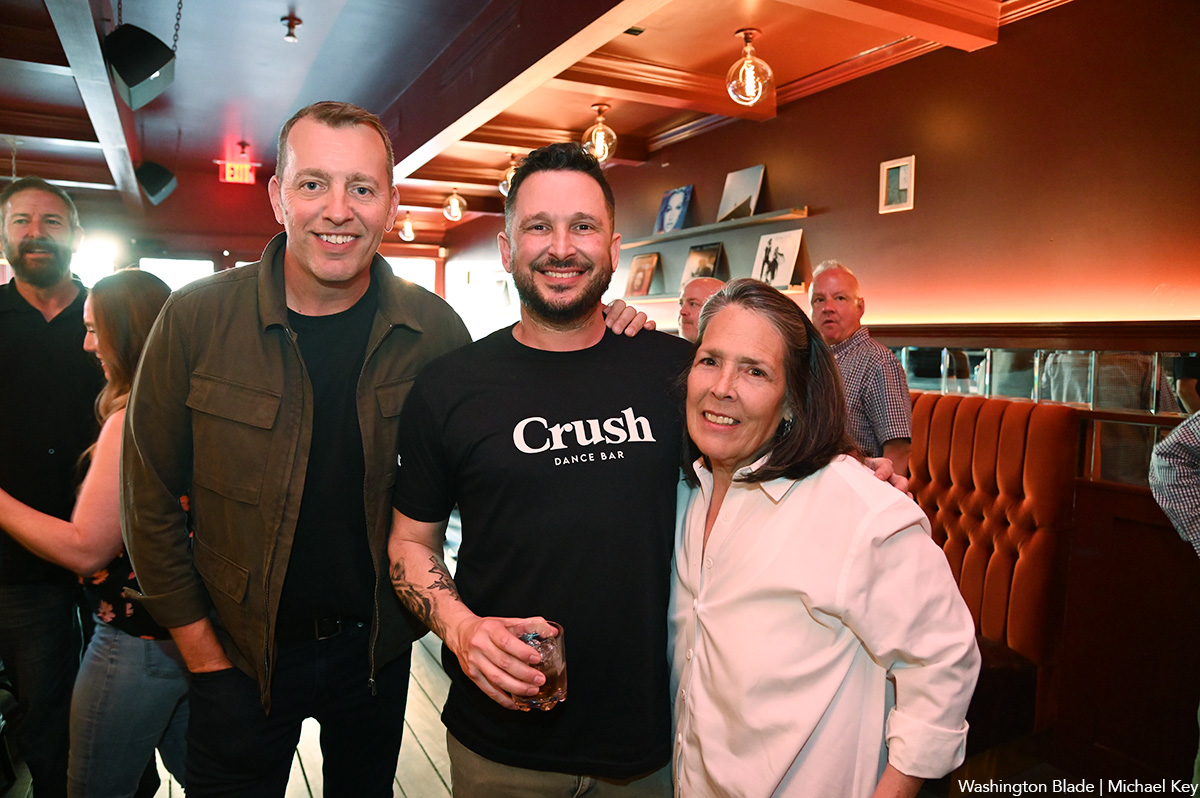
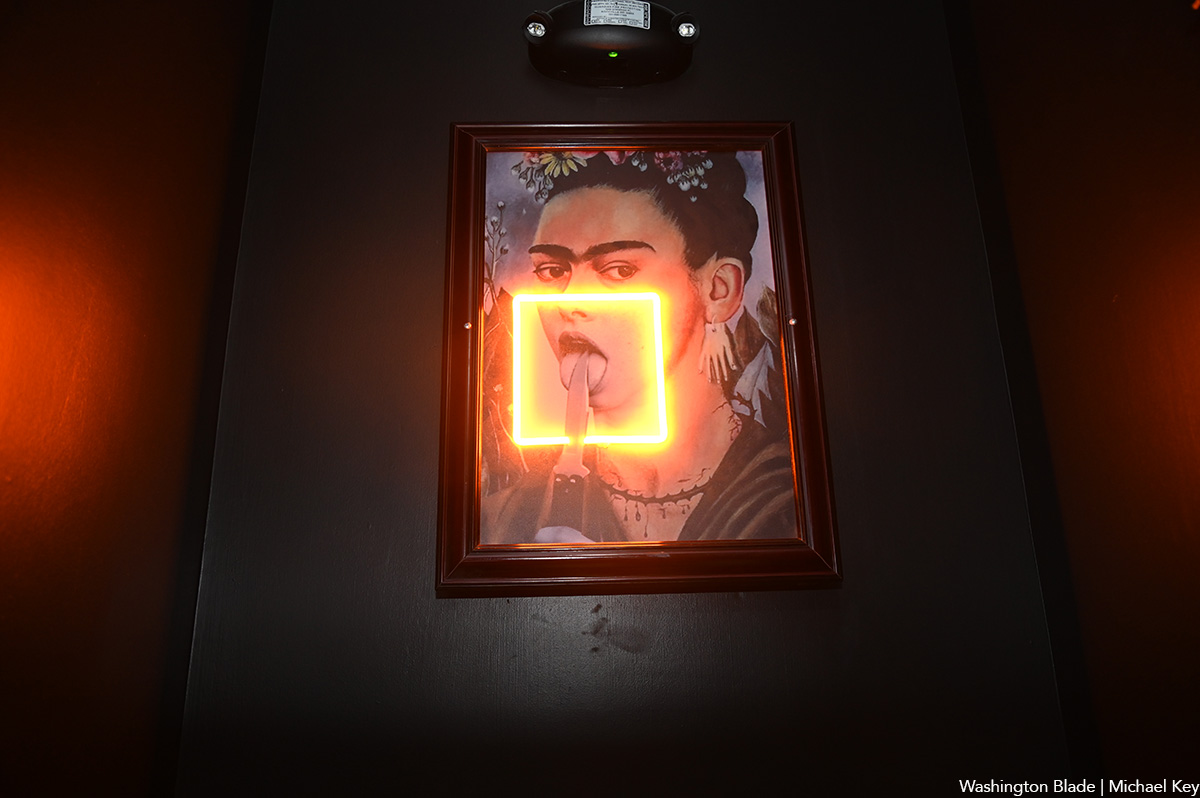
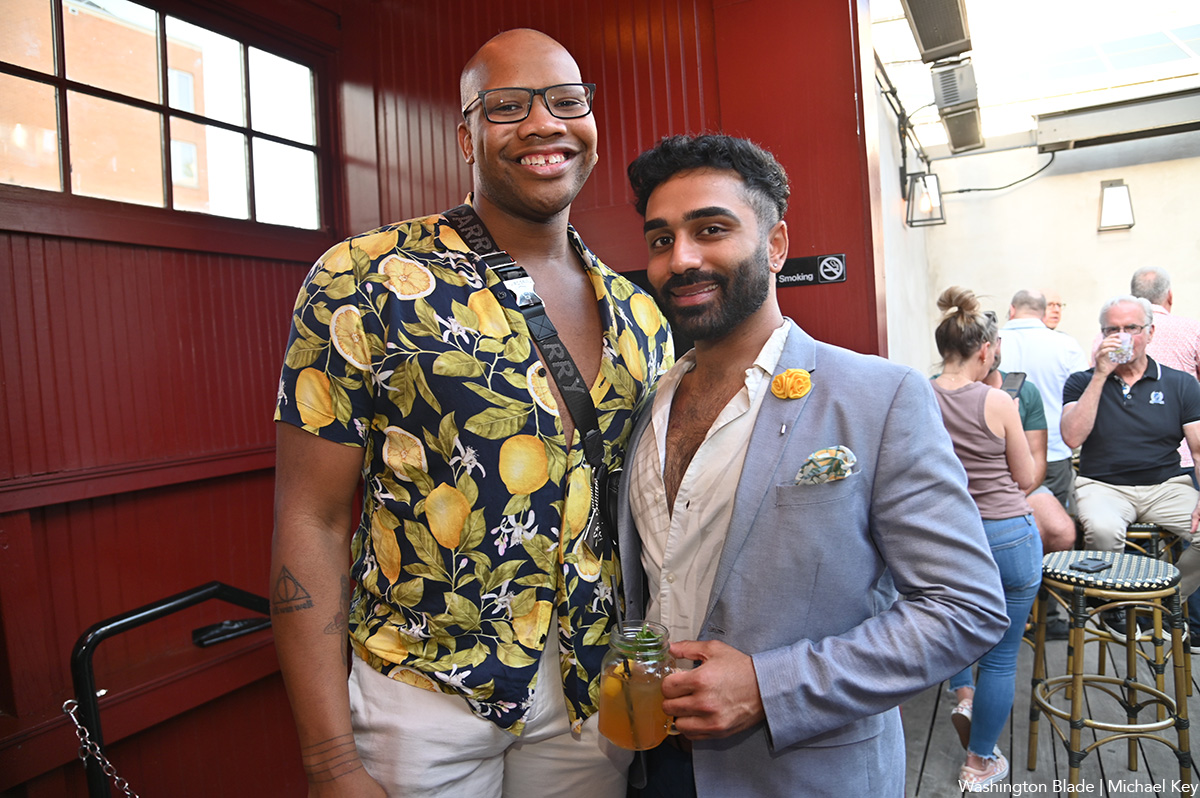
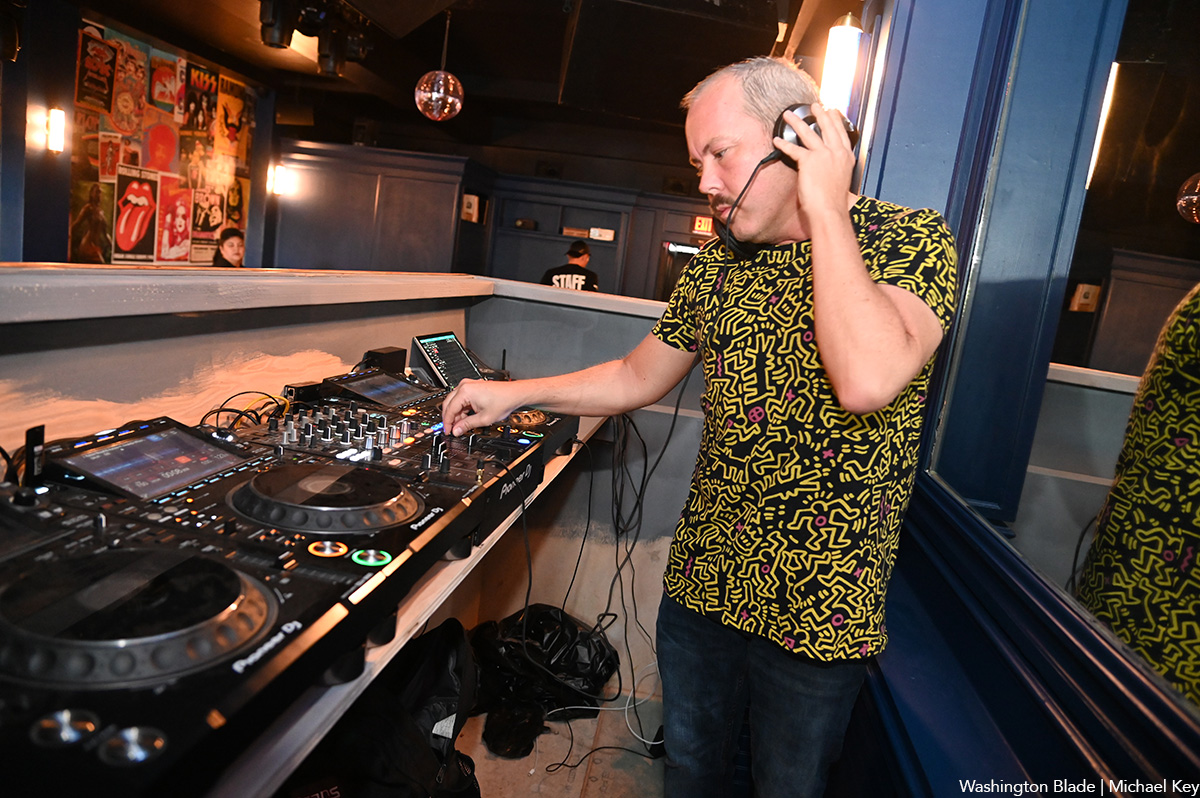
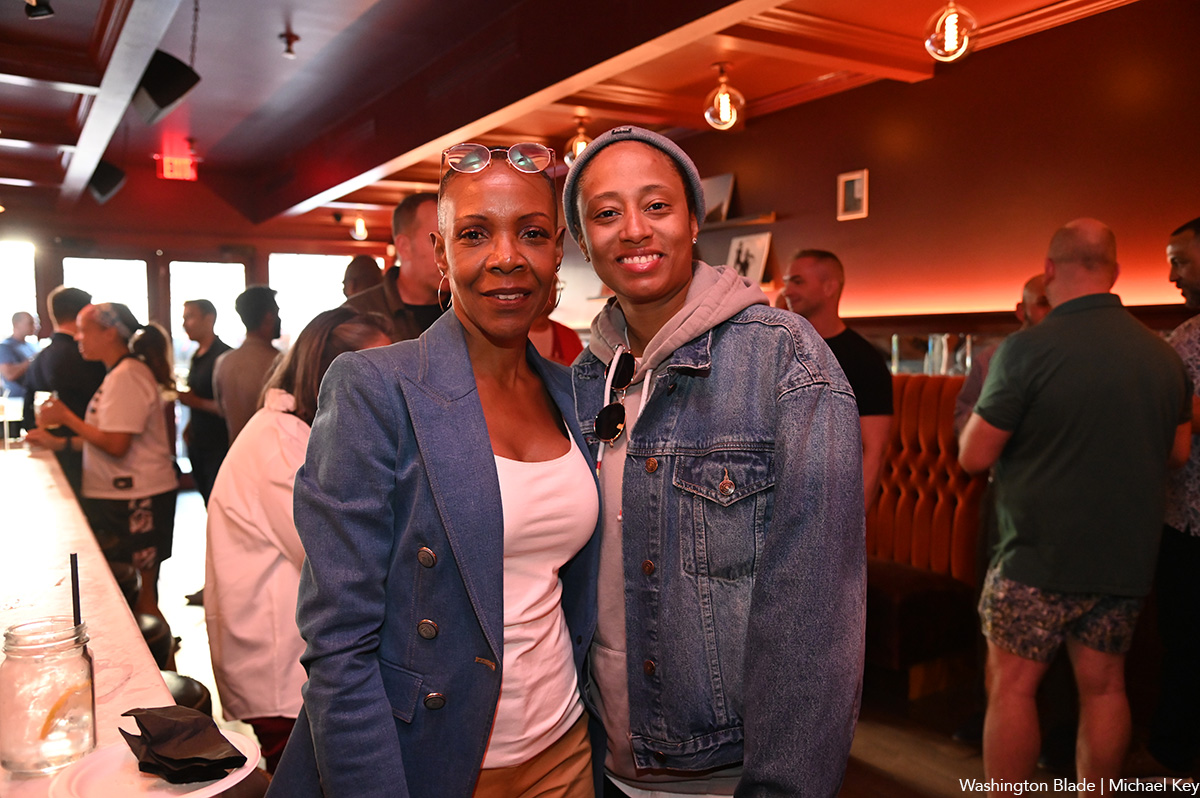
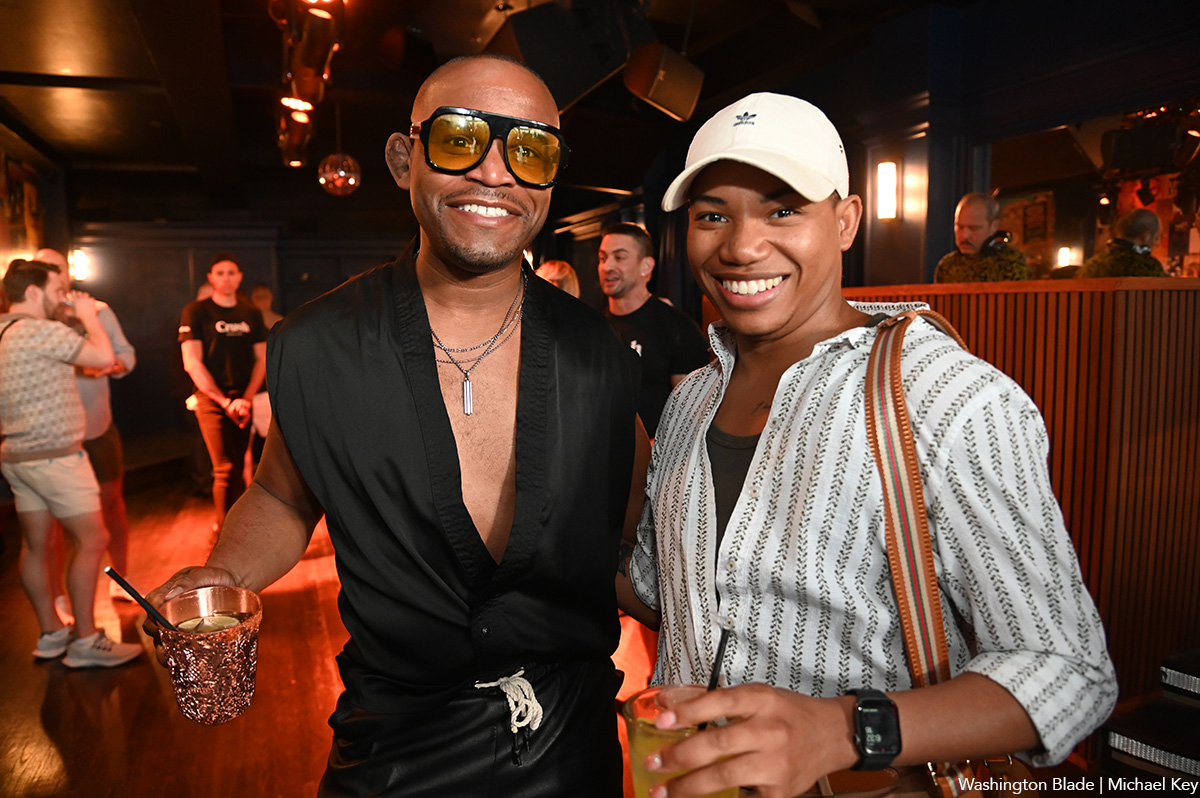
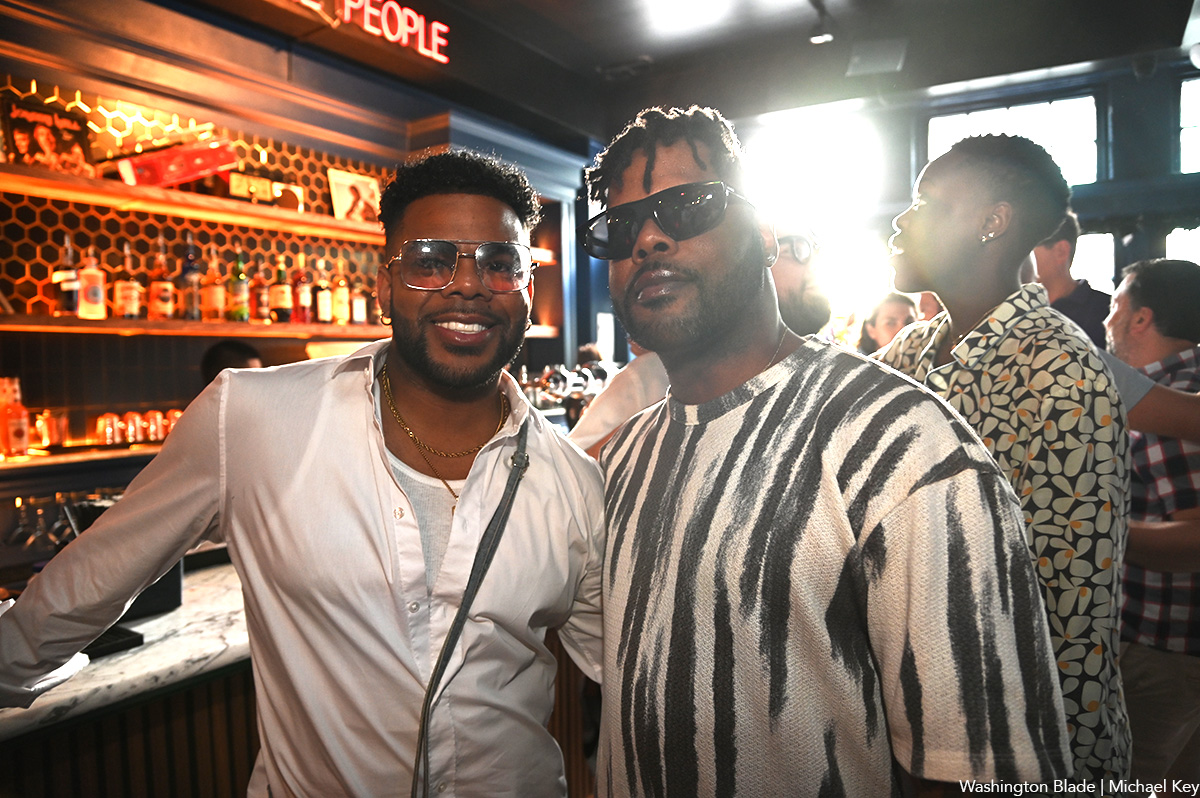
a&e features
What to expect at the 2024 National Cannabis Festival
Wu-Tang Clan to perform; policy discussions also planned

(Editor’s note: Tickets are still available for the National Cannabis Festival, with prices starting at $55 for one-day general admission on Friday through $190 for a two-day pass with early-entry access. The Washington Blade, one of the event’s sponsors, will host a LGBTQIA+ Lounge and moderate a panel discussion on Saturday with the Mayor’s Office of LGBTQ Affairs.)
With two full days of events and programs along with performances by Wu-Tang Clan, Redman, and Thundercat, the 2024 National Cannabis Festival will be bigger than ever this year.
Leading up to the festivities on Friday and Saturday at Washington, D.C.’s RFK Stadium are plenty of can’t-miss experiences planned for 420 Week, including the National Cannabis Policy Summit and an LGBTQ happy hour hosted by the District’s Black-owned queer bar, Thurst Lounge (both happening on Wednesday).
On Tuesday, the Blade caught up with NCF Founder and Executive Producer Caroline Phillips, principal at The High Street PR & Events, for a discussion about the event’s history and the pivotal political moment for cannabis legalization and drug policy reform both locally and nationally. Phillips also shared her thoughts about the role of LGBTQ activists in these movements and the through-line connecting issues of freedom and bodily autonomy.
After D.C. residents voted to approve Initiative 71 in the fall of 2014, she said, adults were permitted to share cannabis and grow the plant at home, while possession was decriminalized with the hope and expectation that fewer people would be incarcerated.
“When that happened, there was also an influx of really high-priced conferences that promised to connect people to big business opportunities so they could make millions in what they were calling the ‘green rush,'” Phillips said.
“At the time, I was working for Human Rights First,” a nonprofit that was, and is, engaged in “a lot of issues to do with world refugees and immigration in the United States” — so, “it was really interesting to me to see the overlap between drug policy reform and some of these other issues that I was working on,” Phillips said.
“And then it rubbed me a little bit the wrong way to hear about the ‘green rush’ before we’d heard about criminal justice reform around cannabis and before we’d heard about people being let out of jail for cannabis offenses.”
“As my interests grew, I realized that there was really a need for this conversation to happen in a larger way that allowed the larger community, the broader community, to learn about not just cannabis legalization, but to understand how it connects to our criminal justice system, to understand how it can really stimulate and benefit our economy, and to understand how it can become a wellness tool for so many people,” Phillips said.
“On top of all of that, as a minority in the cannabis space, it was important to me that this event and my work in the cannabis industry really amplified how we could create space for Black and Brown people to be stakeholders in this economy in a meaningful way.”

“Since I was already working in event production, I decided to use those skills and apply them to creating a cannabis event,” she said. “And in order to create an event that I thought could really give back to our community with ticket prices low enough for people to actually be able to attend, I thought a large-scale event would be good — and thus was born the cannabis festival.”
D.C. to see more regulated cannabis businesses ‘very soon’
Phillips said she believes decriminalization in D.C. has decreased the number of cannabis-related arrests in the city, but she noted arrests have, nevertheless, continued to disproportionately impact Black and Brown people.
“We’re at a really interesting crossroads for our city and for our cannabis community,” she said. In the eight years since Initiative 71 was passed, “We’ve had our licensed regulated cannabis dispensaries and cultivators who’ve been existing in a very red tape-heavy environment, a very tax heavy environment, and then we have the unregulated cannabis cultivators and cannabis dispensaries in the city” who operate via a “loophole” in the law “that allows the sharing of cannabis between adults who are over the age of 21.”
Many of the purveyors in the latter group, Phillips said, “are looking at trying to get into the legal space; so they’re trying to become regulated businesses in Washington, D.C.”
She noted the city will be “releasing 30 or so licenses in the next couple of weeks, and those stores should be coming online very soon” which will mean “you’ll be seeing a lot more of the regulated stores popping up in neighborhoods and hopefully a lot more opportunity for folks that are interested in leaving the unregulated space to be able to join the regulated marketplace.”
National push for de-scheduling cannabis
Signaling the political momentum for reforming cannabis and criminal justice laws, Wednesday’s Policy Summit will feature U.S. Sens. Raphael Warnock (D-Ga.), Jeff Merkley (D-Ore.), Elizabeth Warren (D-Mass.), and Chuck Schumer (D-N.Y.), the Senate majority leader.
Also representing Capitol Hill at the Summit will be U.S. Congresswoman Eleanor Holmes Norton (D-D.C.) and U.S. Reps. Earl Blumenauer (D-Ore.) and Barbara Lee (D-Calif.) — who will be receiving the Supernova Women Cannabis Champion Lifetime Achievement Award — along with an aide to U.S. Rep. David Joyce (R-Ohio).
Nationally, Phillips said much of the conversation around cannabis concerns de-scheduling. Even though 40 states and D.C. have legalized the drug for recreational and/or medical use, marijuana has been classified as a Schedule I substance since the Controlled Substances Act was passed in 1971, which means it carries the heftiest restrictions on, and penalties for, its possession, sale, distribution, and cultivation.
The U.S. Department of Health and Human Services formally requested the drug be reclassified as a Schedule III substance in August, which inaugurated an ongoing review, and in January a group of 12 Senate Democrats sent a letter to the Biden-Harris administration’s Drug Enforcement Administration urging the agency to de-schedule cannabis altogether.
Along with the Summit, Phillips noted that “a large contingent of advocates will be coming to Washington, D.C. this week to host a vigil at the White House and to be at the festival educating people” about these issues. She said NCF is working with the 420 Unity Coalition to push Congress and the Biden-Harris administration to “move straight to de-scheduling cannabis.”
“This would allow folks who have been locked up for cannabis offenses the chance to be released,” she said. “It would also allow medical patients greater access. It would also allow business owners the chance to exist without the specter of the federal government coming in and telling them what they’re doing is wrong and that they’re criminals.”
Phillips added, however, that de-scheduling cannabis will not “suddenly erase” the “generations and generations of systemic racism” in America’s financial institutions, business marketplace, and criminal justice system, nor the consequences that has wrought on Black and Brown communities.
An example of the work that remains, she said, is making sure “that all people are treated fairly by financial institutions so that they can get the funding for their businesses” to, hopefully, create not just another industry, but “really a better industry” that from the outset is focused on “equity” and “access.”
Policy wonks should be sure to visit the festival, too. “We have a really terrific lineup in our policy pavilion,” Phillips said. “A lot of our heavy hitters from our advocacy committee will be presenting programming.”
“On Saturday there is a really strong federal marijuana reform panel that is being led by Maritza Perez Medina from the Drug Policy Alliance,” she said. “So that’s going to be a terrific discussion” that will also feature “representation from the Veterans Cannabis Coalition.”
“We also have a really interesting talk being led by the Law Enforcement Action Partnership about conservatives, cops, and cannabis,” Phillips added.
Cannabis and the LGBTQ community
“I think what’s so interesting about LGBTQIA+ culture and the cannabis community are the parallels that we’ve seen in the movements towards legalization,” Phillips said.
The fight for LGBTQ rights over the years has often involved centering personal stories and personal experiences, she said. “And that really, I think, began to resonate, the more that we talked about it openly in society; the more it was something that we started to see on television; the more it became a topic in youth development and making sure that we’re raising healthy children.”
Likewise, Phillips said, “we’ve seen cannabis become more of a conversation in mainstream culture. We’ve heard the stories of people who’ve had veterans in their families that have used cannabis instead of pharmaceuticals, the friends or family members who’ve had cancer that have turned to CBD or THC so they could sleep, so they could eat so they could get some level of relief.”
Stories about cannabis have also included accounts of folks who were “arrested when they were young” or “the family member who’s still locked up,” she said, just as stories about LGBTQ people have often involved unjust and unnecessary suffering.
Not only are there similarities in the socio-political struggles, Phillips said, but LGBTQ people have played a central role pushing for cannabis legalization and, in fact, in ushering in the movement by “advocating for HIV patients in California to be able to access cannabis’s medicine.”
As a result of the queer community’s involvement, she said, “the foundation of cannabis legalization is truly patient access and criminal justice reform.”
“LGBTQIA+ advocates and cannabis advocates have managed to rein in support of the majority of Americans for the issues that they find important,” Phillips said, even if, unfortunately, other movements for bodily autonomy like those concerning issues of reproductive justice “don’t see that same support.”
Sports
Brittney Griner, wife expecting first child
WNBA star released from Russian gulag in December 2022

One year after returning to the WNBA after her release from a Russian gulag and declaring, “I’m never playing overseas again,” Phoenix Mercury star Brittney Griner and her wife announced they have something even bigger coming up this summer.
Cherelle, 31, and Brittney, 33, are expecting their first child in July. The couple shared the news with their 715,000 followers on Instagram.
“Can’t believe we’re less than three months away from meeting our favorite human being,” the caption read, with the hashtag, #BabyGrinerComingSoon and #July2024.
Griner returned to the U.S. in December 2022 in a prisoner swap, more than nine months after being arrested in Moscow for possession of vape cartridges containing prescription cannabis.
In April 2023, at her first news conference following her release, the two-time Olympic gold medalist made only one exception to her vow to never play overseas again: To return to the Summer Olympic Games, which will be played in Paris starting in July, the same month “Baby Griner” is due. “The only time I would want to would be to represent the USA,” she said last year.
Given that the unrestricted free agent is on the roster of both Team USA and her WNBA team, it’s not immediately clear where Griner will be when their first child arrives.
The Griners purchased their “forever home” in Phoenix just last year.
“Phoenix is home,” Griner said at the Mercury’s end-of-season media day, according to ESPN. “Me and my wife literally just got a place. This is it.”
As the Los Angeles Blade reported last December, Griner is working with Good Morning America anchor Robin Roberts — like Griner, a married lesbian — on an ESPN television documentary as well as a television series for ABC about her life story. Cherelle is executive producer of these projects.
Next month, Griner’s tell-all memoir of her Russian incarceration will be published by Penguin Random House. It’s titled “Coming Home” and the hardcover hits bookstores on May 7.





